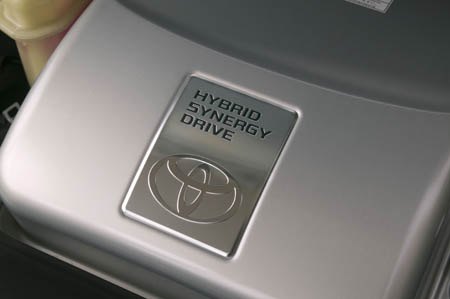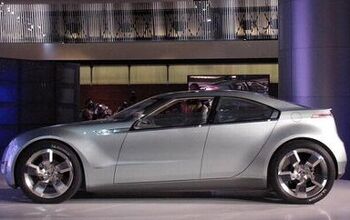The Truth About Hybrids
The Toyota Prius, Honda Accord hybrid and Ford Escape hybrid are a major hit. The buff books rave about them, the Greens bless them and retail customers can't get enough (literally). While the mileage, environmental and PC advantages of vehicles powered by a gas – electric powerplant seems obvious, how much of this hybrid mania is hype?
Buyers pay a large premium for a hybrid Escape or a Prius, presuming that the increased fuel mileage makes them a better environmental citizen. While there's no question that the Toyota, Honda and Ford hybrids are more fuel efficient than their conventionally powered equivalents, the difference is nowhere near as great as the Environmental Protection Agency (EPA) numbers suggest.
Because of the low speeds involved, the city portion of the EPA's test is accomplished in battery-only mode. As the gasoline engine is off-line for a significant part of the test, the eventual mileage figure is grossly inflated. The test fails to consider the fuel needed to recharge the batteries later on. What's more, all energy-draining, electrically-powered accessories (including AC) are switched off during both the urban and highway tests. These variables contribute to the huge discrepancy between the EPA's official numbers and hybrid owners' real world experience.
Few people realize that a hybrid's power train adds roughly 10% to the weight of a car. Even fewer realize that manufacturers try to offset the weight penalty– and add to the hybrid's headline-grabbing mileage figures– by the extensive use of non-hybrid gas-saving technology. Engine shut-off at idle, electric power steering, harder and reduced rolling resistance tires (at the expense of comfort and traction), reduced option content, reduced engine performance, and, in the case of the Ford, a continuously variable transmission (CVT) all help raise the cars' overall efficiency.
Of course, if gas mileage is the ultimate goal, all of these strategies could be applied to a "standard" car. A non-hybrid model with the equivalent modifications would significantly narrow the mileage gap with its hybrid sibling. In fact, in normal use, the margin between truly comparable hybrid and non-hybrid cars could be less than 10%– hardly enough to justify the extra purchase price. And, lest we forget, the hybrid's gas-saving advantage is not without its own particular environmental costs…
Gas – electric hybrid engines use several large batteries. Creating these power cells requires a couple of hundred pounds of heavy metals– not to mention the copper used in the large electric drive motors and the heavy wires they require. Mining and smelting lead, copper and other heavy metals is an energy intensive process that generates both air pollution and deforestation. Disposing of the batteries when they outlive their usefulness also raises environmental challenges.
And then there are the safety problems related to the gas – electric hybrid engine's high voltages and amperages. While Federal Motor Vehicle Safety Standards (FMVSS) regulate a passenger vehicle's basic crash protection, there are no federally mandated procedures remain for the protection of rescue workers at the site of an accident involving a hybrid-powered vehicle. Service technicians and do-it-yourself owners also lack the guidelines, education and training necessary to safely repair hybrid engines.
So, if the hybrid's mileage advantage is minimal, and the technology has its own set of negative environmental side effects, why is hybrid technology so popular, both in the marketplace and in the glossy pages of the car mags?
Americans are fond of turning to simple silver bullets to solve complicated problems. The hybrid solution seems ideal. Want to be environmentally responsible? Buy a hybrid. A hybrid car offers instant gratification, PC-style. It relieves consumers of both guilt and personal responsibility for the broader impact of their daily energy consumption habits. Heaven forbid that a hybrid owner should switch off their central air, or buy less disposable products, or use their car less, to help protect the environment.
Hybrid technology embodies America's 'solution of the day' syndrome. A quarter of a century ago, the diesel-powered car was going to free us from dependence on imported oil. A while later, the turbocharger was set to improve the efficiency of the internal combustion engine and liberate us from foreign oil addiction. About a decade ago, the California Air Resources Board thought that battery-powered electric cars were the answer, cleaning the air as they saved the world's petrochemical resources.
The problem with the 'solution of the day' is that few of these "easy" solutions actually work. Automotive history is littered with failed miracles, from the kerosene-driven Stanley Steamer to the rotary-powered Skycar. Time has proven that the only innovations that persevere in the marketplace are the ones that deliver real benefits. No amount of hype can obscure, for long, the lack of results. When boosters call hybrid technology an "interim" solution to our energy needs, they're more right than they even know.
More by Bob Elton
Latest Car Reviews
Read moreLatest Product Reviews
Read moreRecent Comments
- TheEndlessEnigma Of course they should unionize. US based automotive production component production and auto assembly plants with unionized memberships produce the highest quality products in the automotive sector. Just look at the high quality products produced by GM, Ford and Chrysler!
- Redapple2 Got cha. No big.
- Theflyersfan The wheel and tire combo is tragic and the "M Stripe" has to go, but overall, this one is a keeper. Provided the mileage isn't 300,000 and the service records don't read like a horror novel, this could be one of the last (almost) unmodified E34s out there that isn't rotting in a barn. I can see this ad being taken down quickly due to someone taking the chance. Recently had some good finds here. Which means Monday, we'll see a 1999 Honda Civic with falling off body mods from Pep Boys, a rusted fart can, Honda Rot with bad paint, 400,000 miles, and a biohazard interior, all for the unrealistic price of $10,000.
- Theflyersfan Expect a press report about an expansion of VW's Mexican plant any day now. I'm all for worker's rights to get the best (and fair) wages and benefits possible, but didn't VW, and for that matter many of the Asian and European carmaker plants in the south, already have as good of, if not better wages already? This can drive a wedge in those plants and this might be a case of be careful what you wish for.
- Jkross22 When I think about products that I buy that are of the highest quality or are of great value, I have no idea if they are made as a whole or in parts by unionized employees. As a customer, that's really all I care about. When I think about services I receive from unionized and non-unionized employees, it varies from C- to F levels of service. Will unionizing make the cars better or worse?





































Comments
Join the conversation
With each passing day the "Hybrids are overrated" articles become more dated, especially with ever increasing fuel costs. Arguing against the price premium of the hybrid system is meaningless, the same argument could be used against the premium paid for say a popular vehicle versus an unpoplular one. Say a Camry versus a Taurus. Assuming that one was going to pay a certain pice range anyway for a vehicle then the premium argument is moot. If one was going to buy a vehicle in the 20 to 25 thousand dollar range and then one purchased a vehicle for say 24 thousand dollars, the fact that the same vehicle could be had without the hybrid system for say 20 thousand dollars is as meaningful as telling someone you could have purchased a Falcon instead of a Mustang and saved x dollars. If you want a car and it is in your price range and you want a feature then manufacturers must give consumers what they demand. The anti-hybrid outlook is one of the factors killing GM and Ford.